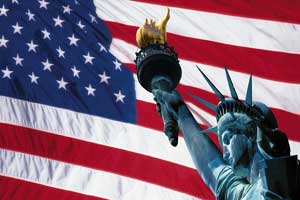 On April 1st this year, the US Citizenship and Immigration Services started accepting H-1B US visa petitions, the fiscal year 2015’s annual allotment of work visas for professionals. By the 10th of the month USCIS revealed that they had already received over 172,500 petitions, while there are only 85,000 US visas available.
On April 1st this year, the US Citizenship and Immigration Services started accepting H-1B US visa petitions, the fiscal year 2015’s annual allotment of work visas for professionals. By the 10th of the month USCIS revealed that they had already received over 172,500 petitions, while there are only 85,000 US visas available.
The reality of this process, according to many who feel it is antiquated and a damning indictment of the United States’ broken immigration system, is that the H-1B lottery and cap results in the country’s economy losing out in a big way. The program allows US employers to hire as many as 85,000 immigrant workers per annum to fill positions at a professional level in their fields.
The H-1B US visa is often the only option for American companies that wish to hire a particular immigrant worker. For growing businesses, especially those within the technology sector, the cap on this type of visa in addition to various other limitations imposed by the current immigration system in the United States are stymieing their ability to grow and develop their companies by restricting their ability to grow, hire and innovate in a competitive manner in the country’s still fragile recovering economy.
It is not only start-up firms that are losing out either, as employers both small and large all across the country whose petitions for visas are rejected are denied the chance to legally employ qualified workers who just happen to come from overseas.
